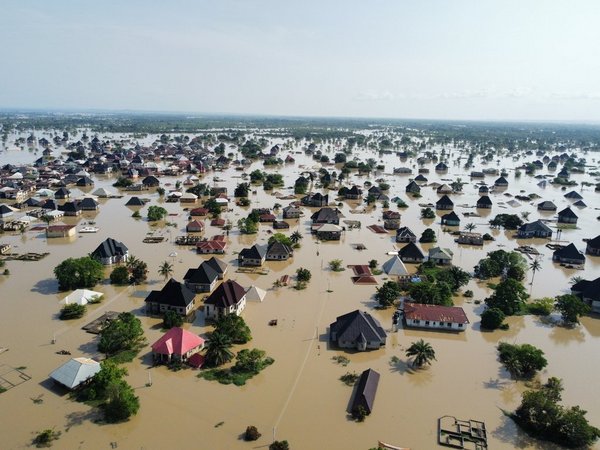 Read this article in French
Read this article in French- Share this article
- Subscribe to our newsletter
Agreement to activate the new fund for loss and damage
Already at the beginning of the World Climate Conference in Dubai, United Arab Emirates, on the 30th November 2023, the Parties to the United Nations Framework Convention on Climate Change (UNFCCC) agreed on a new fund to deal with damage caused by climate change in developing countries should work.
The states party to the UNFCCC adopted a proposed compromise which had been worked out by Germany and further countries in the run-up to the meeting. All states as well as further donors were addressed as payers – unlike with other climate funds with their classic contributors in the industrialised nations. Several countries have already pledged money to the fund, including Germany and the United Arab Emirates, who are supporting the fund with 100 million USD each.
The resolution on the functioning of the fund settles important issues which used to be controversial for a long time. For example, the donor base is kept open on purpose instead of being restricted to the small group of states which were already industrialised countries in 1992, when the UNFCCC was adopted. The issue of where the money is to flow to will be decided by the fund’s new Board, and hence by industrialised and developing countries together. The Board is to comprise 14 seats for developing countries and 12 seats for industrialised countries, and whenever possible, decisions should be taken on a consensual basis – otherwise with a four-fifths majority. In the allocation of funds, priority should be given to those countries which are particularly vulnerable to the impacts of climate change. A yet to be defined minimum share is to go to the least developed countries and the small island nations.
The fund is not intended to provide for compensation or reparations but to enable developing countries to cope better with damage caused by climate change. This can for instance be achieved with early warning systems against floods or social security activated in time to limit or even completely avoid any damage. Follow-up costs could thus be avoided. If, for example, smallholders who become flood victims receive help quickly, they can bring their livestock to safety and it will take less time for them to recover. If children carry on going to school in times of acute need, there will be better prospects for a climate shock not leading to perennial poverty.
“COP28 opened with a historic agreement on the operationalisation of the loss and damage fund to help vulnerable countries deal with the impacts of climate breakdown. I extend my sincere congratulations to all countries for their important commitments to operationalize the fund. These pledges are not just financial; they represent a shared acknowledgment that addressing the challenges of climate change is an urgent moral imperative,” said Qu Dongyu, Director-General of the United Nations Food and Agriculture Organization (FAO).
(BMZ/FAO/ile)





Add a comment
Be the First to Comment